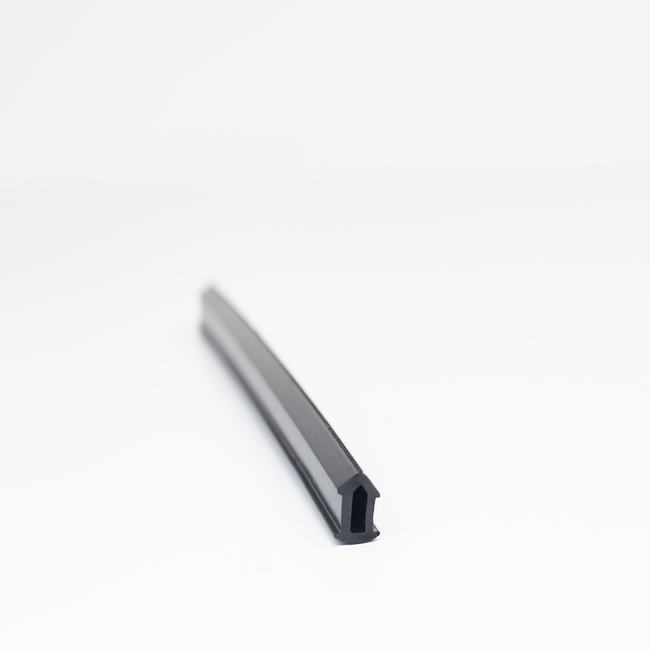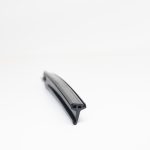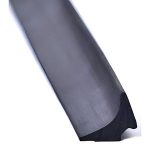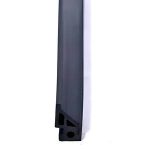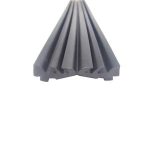Industrial seals are essential components used across a wide range of industrial applications to provide containment, protection, and functionality in mechanical systems and equipment. These seals serve as barriers to prevent the ingress of foreign materials, control fluid flow, maintain pressure differentials, and ensure the efficient operation of machinery and processes. They play a crucial role in maintaining the integrity and safety of industrial systems. This comprehensive description covers the various aspects of industrial seals:
1. Purpose and Function:
Industrial seals have several vital functions, including:
- Containment: Seals prevent the escape of liquids, gases, or particles from a confined space, ensuring the safety of personnel and the environment.
- Protection: They shield critical components from contamination, corrosion, and damage due to exposure to harsh environmental conditions, chemicals, or abrasion.
- Pressure Control: Seals maintain pressure differentials within systems, allowing for the controlled flow of fluids or gases while preventing leaks.
- Motion Control: Seals assist in controlling the movement of mechanical parts, such as pistons, rods, and rotating shafts, to achieve precise positioning and minimize wear.
- Vibration Damping: In industrial machinery, seals absorb vibrations and reduce noise levels, enhancing the longevity and reliability of equipment.
2. Types of Industrial Seals:
Industrial seals come in various types and designs to meet the specific needs of different industries and applications. Some common types include:
- O-Rings: Circular seals made from elastomeric materials, used in a wide range of applications due to their simplicity and versatility.
- Gaskets: Sheet or ring-shaped seals placed between two surfaces to create a leak-tight connection, typically made from materials like rubber, cork, or metal.
- Mechanical Seals: Used in rotating equipment such as pumps and compressors to prevent leakage and maintain the integrity of the sealed chamber.
- Lip Seals: Employed in rotary shafts to prevent the entry of contaminants and the loss of lubricants.
- Hydraulic Seals: Designed for hydraulic and pneumatic systems, these seals ensure fluid containment, control, and pressure regulation.
- Flange Seals: Used in pipe and flange connections to prevent leaks and ensure the integrity of piping systems.
3. Materials and Construction:
The choice of materials for industrial seals depends on factors like the specific application, temperature range, chemical compatibility, and pressure requirements. Common materials include:
- Elastomers: Rubber materials such as Nitrile, EPDM, Silicone, and Viton are often used for their resilience, flexibility, and chemical resistance.
- Plastics: Materials like PTFE (Polytetrafluoroethylene) offer exceptional chemical resistance, while thermoplastic elastomers provide a balance of flexibility and durability.
- Metals: Stainless steel, carbon steel, and other metals are used for mechanical seals and high-pressure applications due to their strength and corrosion resistance.
4. Installation and Maintenance:
Proper installation and regular maintenance are essential to ensure the longevity and effectiveness of industrial seals. This includes selecting the right seal for the application, ensuring proper alignment and tension, and conducting routine inspections for wear, damage, or deterioration.
5. Applications:
Industrial seals are employed in a wide range of industrial sectors, including:
- Manufacturing: In machinery, pumps, and hydraulic systems to maintain efficient operation and prevent leaks.
- Oil and Gas: Seals are used in pipelines, wellheads, valves, and drilling equipment to ensure the containment of fluids and prevent environmental damage.
- Aerospace: In aircraft and spacecraft to maintain air pressure differentials, protect components, and ensure safety.
- Automotive: In engines, transmissions, and suspension systems to prevent leakage and enhance vehicle performance.
- Chemical and Petrochemical: In pumps, valves, and tanks to prevent chemical leaks and ensure the safety of workers and the environment.
- Food and Beverage: In processing equipment to prevent contamination and maintain food safety standards.
- Pharmaceutical and Medical: In medical devices, pharmaceutical manufacturing, and laboratory equipment to maintain sterile conditions and prevent contamination.
In conclusion, industrial seals are fundamental components in various industrial applications, ensuring the integrity, efficiency, and safety of mechanical systems and equipment. They come in a variety of types and materials, each tailored to specific applications and environmental conditions. Proper installation and maintenance are crucial for their effective and long-lasting performance, making them indispensable in modern industrial processes.
